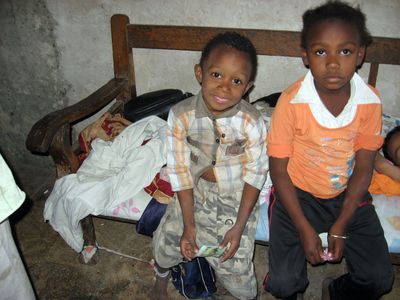Iraq’s young show war’s toll
U.N. says one-fifth don’t attend school

BAGHDAD – At age 14, Ahmad Razaq has worked more jobs than he can count. He’s painted houses, cleaned office buildings and supervised a janitorial crew. Lately he spends his days washing cars for a few dollars a week outside a dingy hotel in Baghdad.
He’s never set foot inside a classroom. He’s only heard about school from friends. He can’t read or write, and he figures he never will.
“I want to go to school, but I think it’s too late for me now,” Ahmad said, standing outside his family’s dilapidated shack in Baghdad’s Karrada neighborhood. “Besides, you need money to go to school.”
This is the way many Iraqi children live, working for meager wages or staying at home instead of going to school. Though Iraq’s Education Ministry disputes their statistics, the United Nations and aid organizations estimate that about a fifth of school-age children here don’t attend. Girls and children who live in rural areas are particularly affected.
Violence has dropped dramatically across Iraq in recent months, but fallout from the bloodshed – lost livelihoods, broken families and disrupted institutions – will linger for a long time. Children begging for money or selling cold sodas from the side of the road are everywhere in Baghdad, even during school hours. As much as anything, they bear witness to all the rebuilding that’s left for Iraq.
“There are so many ways it will hurt our country’s future if more children don’t join school,” said Mahmoud Othman, a Kurdish member of Iraq’s parliament. “It hurts our economy, our standard of living, our entire development.”
The biggest reason that Iraqi children stay home from school is money. A public education is free in Iraq, but a lot of families are too poor to afford backpacks, notebooks and proper school clothes. The cost of living has risen dramatically across the country in recent years, and the unemployment rate is around 50 percent.